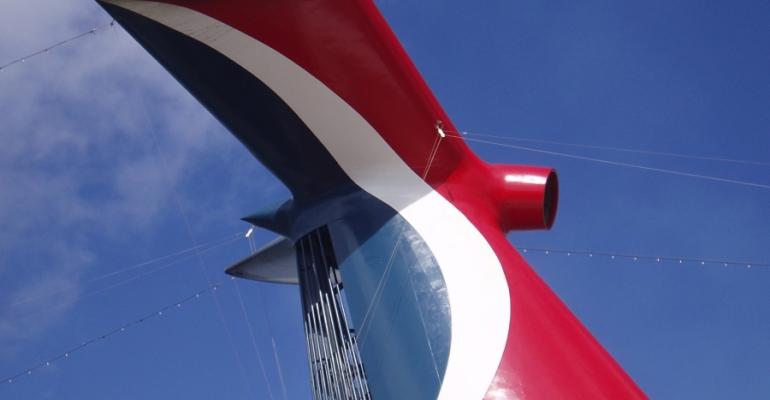According to the company's newly issued 2015 sustainability report, Carnival is on track to meet nearly all of the 10 environmental, safety, labor and social goals it set to achieve by 2020.
In 2005, Carnival determined to cut its carbon dioxide emissions 25% by 2020. So far, it has achieved a 23.4% reduction compared to the 2005 baseline. Plus, the exhaust gas cleaning systems installed are reducing sulfur compounds and particulate matter from engine exhaust.
Last year Carnival ordered the world’s first LNG-powered cruise ships, which begin arriving in 2019. In 2015, AIDA Cruises' AIDAsol became the first cruise ship to be supplied with power by an LNG hybrid barge while in port.
The company is on track to meet the 10-point increase in fleetwide capacity of advanced wastewater purification systems.
Though when it came to decreasing the impact on ports visited by producing more potable water from seawater, Carnival said it's lagging. The company produced 3% more water from seawater in 2015, equaling 76% of its total water usage. The goal is 5%.
Water consumption over the years has gone down, however, with the water use rate 61 gallons per person per day versus the US national average of 90 gallons per person per day.
Other environmental strides Carnival made in 2015 include undertaking shipbuilding research and development for new abatement technologies and equipment to improve energy efficiency such as air lubrication systems using bubbles to reduce friction between the ship’s hull and the water.
In addition, the company worked with suppliers to expand its sourcing of cage-free eggs with the goal of 100% cage-free eggs by 2025, and Carnival encouraged sustainable practices by its tour operators.
Furthermore, in 2015 Carnival donated $5m to Big Brothers Big Sisters of Miami to create the Carnival Center for Excellence that will serve as the headquarters for Big Brothers Big Sisters of Miami.
The company donated reusable goods such as furniture, kitchenware, toiletries and other items from its ships to people in need throughout the communities it visits, and it donated cruises valued at more than $2m.
Carnival continued its partnership with The Nature Conservancy in 2015 with a $2.5m financial commitment over a five-year period, starting in 2014. This supports The Nature Conservancy's Mapping Ocean Wealth program that creates maps showing the extent and distribution of benefits that habitats like coral reefs and mangroves provide, including fish production, flood mitigation, erosion control and recreation.
Progress made in 2015 with the help of Carnival's donation included generating new knowledge about coral reef conditions, comparisons of nature-based and artificial defenses, innovative financing and other important topics. Also, ground-breaking research was published on fish production associated with oyster reefs.
As well, The Nature Conservancy pioneered innovative methods, such as using social media to measure tourism activities, natural resources available, distribution, intensity of use and user satisfaction through the work being performed on the development of a global map of mangrove tourism.
'We know it is increasingly important to have sustainable and transparent operations, so we work hard every day to run our company in a sustainable way, and to share those practices broadly, so that our guests can feel confident that they are making a responsible decision when they book a vacation with us,' said Bill Burke, chief maritime officer for Carnival Corp.
The full 2015 sustainability report can be downloaded here.
Copyright © 2024. All rights reserved. Seatrade, a trading name of Informa Markets (UK) Limited. Add Seatrade Cruise News to your Google News feed.


